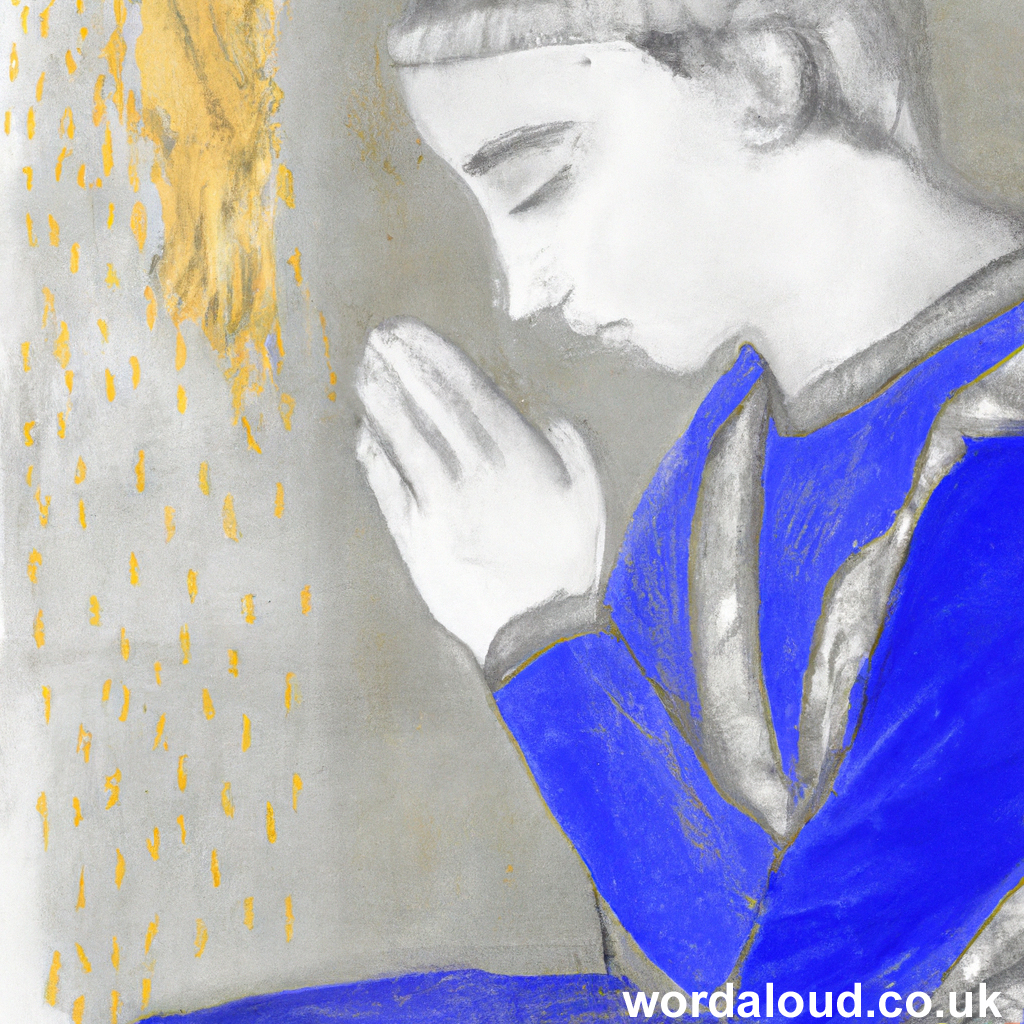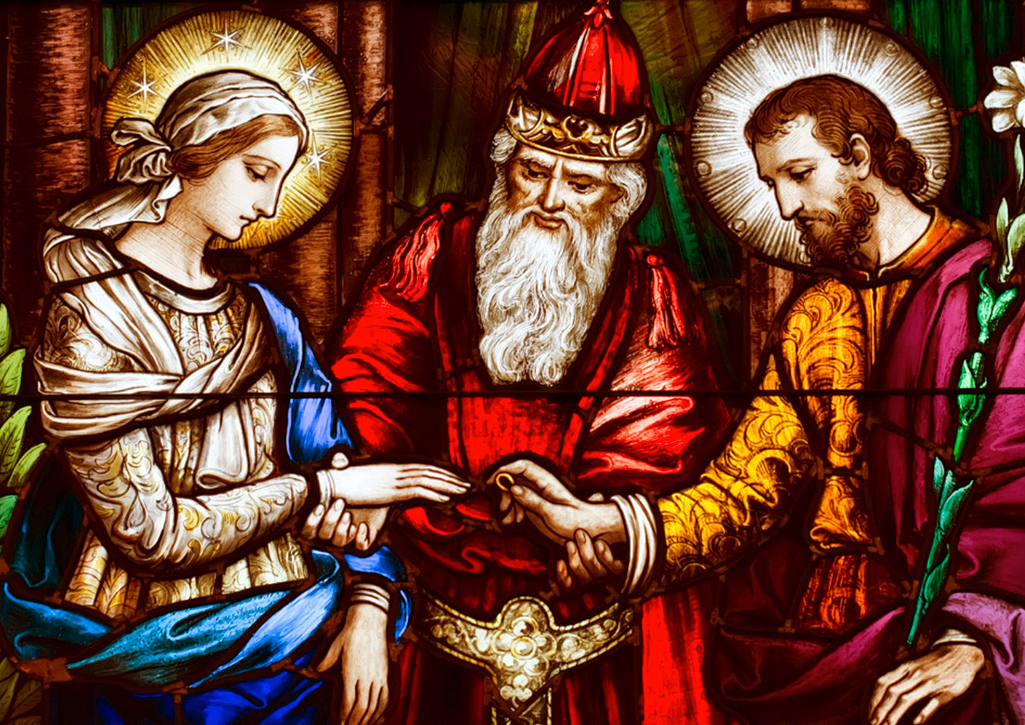Christian Art | Jesus’ Family | King James Audio Bible KJV
Luke 8: 19-21 – Week 25 Ordinary Time, Tuesday (King James Audio Bible KJV, Spoken Word)
19 ¶ Then came to him his mother and his brethren, and could not come at him for the press.
20 And it was told him by certain which said, Thy mother and thy brethren stand without, desiring to see thee.
21 And he answered and said unto them, My mother and my brethren are these which hear the word of God, and do it.
Relatives of Jesus, with Jesus’ mother Mary, have come to speak with him, but Jesus does not wish to meet with them. Jesus had problems with his family. We may consider some of the ways in which our own families support us, and at other times may hinder us from doing what is right. Jesus’ refusal to meet with his family is clearly expressed in all three of the Synoptic Gospels.
We may wonder at the family of Jesus’ coming to meet with him, presumably to try to take him home – what we might now term an ‘intervention’. They must have been greatly troubled by what Jesus was saying and doing. In Mark, we are told that Jesus’ friends thought him beside himself, that he had lost his wits. Perhaps it was partly a question of what the neighbours might say, but in these difficult and dangerous times there would be real fear about making oneself the centre of attention, and in such a revolutionary way as Jesus really did – this in addition to how Jesus might have been perceived to have been doing so politically.
To return Jesus from Capernaum to Nazareth would indeed have been to take him to a place of relative safety, up in the hills – but then how could Jesus have continued so effectively to speak to so many? Jesus’ mission is sacrifice. His cross is implied throughout. All that we hear about Jesus is continual self-giving. It must have been difficult for Jesus’ close friends and relatives to accept this.
Jesus’ response to his being told of his mother’s and relatives’ asking to speak with him is, above all, to extend for us the notion of family. It is a grand gesture, one which holds for us the truth of God’s Kingdom. Through faith, we become most intimately related with Jesus. We are mother and sister and brother – all family relationships are invoked to grasp the overwhelming truth of our oneness in Jesus Christ. Through our kinship with Jesus, our very being expands.
Concluding Prayer | Love Revealed By Jesus Christ
Almighty God,
we recall how you sent your angel to the centurion Cornelius
to show him the way of salvation.
Open our hearts to work more zealously
for the salvation of the world,
so that your Church
may bring us and all men into your presence.
Through Christ our Lord.
![]()

King James Audio Bible | Endnotes
Amazed And Afraid | Reactions To Jesus
Even Jesus’ family – even Jesus’ Mother Mary – were made amazed and afraid by Jesus. Throughout the Gospels, we see numerous instances where people were filled with fear and amazement in the presence of Jesus. These emotions reflect the power and authority that Jesus held over the people around him. His teachings were radical and challenging, and his actions often defied conventional wisdom and expectations.
Mary, Jesus’ mother, had a unique perspective on Jesus life and ministry. Mary knew Jesus in a way that no one else could, having carried Jesus in her womb and raised him from a child. Despite this, Mary was not immune to the powerful impact that Jesus had on those around him. In fact, we see in the Gospels that Mary herself was filled with fear and amazement on more than one occasion.
One such instance is recounted in Luke 2:41-52, where Mary and Joseph find Jesus in the temple after he had been missing for three days. When Mary expresses her anxiety and frustration to Jesus, Jesus responds with the words: ‘Did you not know that I must be about my Father’s business?’ (Luke 2:49) This response would have been shocking and bewildering to Mary, as it suggested a level of divine calling and authority that went beyond what Mary had known of her son before.
Similarly, in Mark 3:20-21, we read that Mary and Jesus’ family went to take charge of him because they thought he was ‘beside himself’. This suggests that they may have been struggling to come to terms with the powerful impact Jesus was having on the people around him and the radical message Jesus was preaching. They may have also been afraid of the religious authorities who saw Jesus as a threat to their power.
These moments of fear and amazement reveal the extent to which Jesus’ teachings and actions challenged people’s preconceived notions and defied conventional wisdom. Even those closest to Jesus – his own family – were not immune to the powerful impact Jesus had on those around him. However, as we see in Mary’s unwavering faith at the foot of the cross in John 19:25-27, those who were able to overcome their fear and embrace the message of Jesus were able to experience a sense of peace and purpose that they had never known before.
This fear and amazement that people felt in the presence of Jesus was not limited to his own family. Throughout the Gospels, we see that people from all walks of life were drawn to him, and that Jesus’ teachings and actions elicited a wide range of reactions, from awe and reverence to anger and disbelief.
One notable example of this is the story of the calming of the storm in Mark 4:35-41. In this story, Jesus and his disciples are in a boat when a fierce storm arises, threatening to capsize the vessel. Jesus, who is asleep in the boat, is awakened by the terrified disciples, who beg him to save them. In response, Jesus rebukes the wind and the waves, and the storm immediately subsides. The disciples are left in awe of Jesus’ power and authority, wondering aloud, ‘Who then is this, that even the wind and the sea obey him?’ (Mark 4:41)
Similarly, in Mark 5:1-20, we see the reaction of the people of the region of the Gerasenes to Jesus’ healing of a man possessed by a legion of demons. After witnessing the man’s transformation, they are filled with fear and beg Jesus to leave their region, not knowing how to reconcile the power they had witnessed with their own beliefs and way of life.








